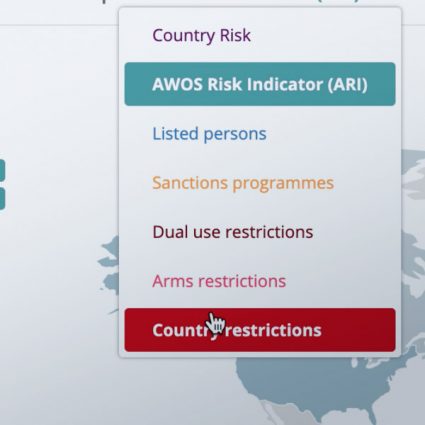

The term “Export Controls” means the organization that all companies must put in place in order to assess risks arising from the dispatch of goods and from technologies, companies, entities and financial transactions in relation to restrictions, prohibitions and embargoes imposed on the country to which they export.
Adopting an Export Controls system has become necessary after the creation of numerous black lists by international authorities (USA, EU, UN and now the UK), who have imposed restrictions on companies and entities, increasing the number of controls required when exporting to risk countries.
Export Controls also verify the legitimacy of trading in military and dual use products and technologies. “Goods with dual use” are specifically goods and technologies used mainly for civil purposes but which may have a military application and hence are subject to restrictions or controls.
Proper identification of risks and effective intervention to be carried out in relation to commercial and financial transactions in Countries at risk
Optimization of company processes and compliance costs, with efficient scheduling and the use of resources, speeding up decision-making
Avoidance of the risk of penalties and prosecution, of inclusion in black lists and reputational damage
Proper management of relations with banks and compliance with export controls policy
Prevention of over compliance: the rigid and unnecessary application of policies and regulations
Definition of risks from commercial and financial transactions associated with companies, products and countries
Verification of compliance and the application of Customs regulations and export controls
Technical analysis, feasibility studies, analytic schedules and handbooks, operational due diligence
Objective verification of products to be dispatched, identifying export restrictions
Verification procedures for products with dual use and procedures for export licenses
Subjective verification of commercial transactions, compliance with AML (Anti Money Laundering) regulations and KYC procedures
Management of authorizations for administrative procedures regarding products and industrial sectors subject to licenses
Analysis of international sanctions regimens, regulatory details and updates
Drafting of the Internal Compliance Program (ICP)